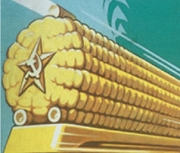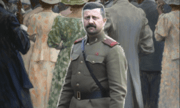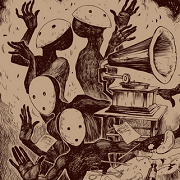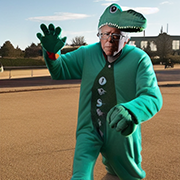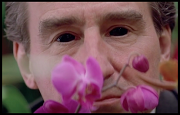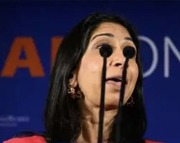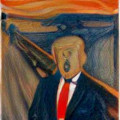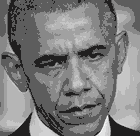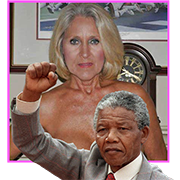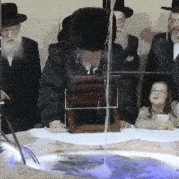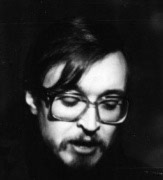|
What is the most powerful flying bug? This poll is closed. |
|||
|---|---|---|---|
| 🦋 |
|
15 | 3.71% |
| 🦇 |
|
115 | 28.47% |
| 🪰 |
|
12 | 2.97% |
| 🐦 |
|
67 | 16.58% |
| dragonfly |
|
94 | 23.27% |
| 🦟 |
|
14 | 3.47% |
| 🐝 |
|
87 | 21.53% |
| Total: | 404 votes | ||
|
PawParole posted:https://twitter.com/powerfultakes/status/1742034596902875557 alright now do the stadium the Ukranians named after their Nazi butcher next
|
|
|
|

|
| # ? May 26, 2024 10:29 |
|
my bony fealty posted:alright now do the stadium the Ukranians named after their Nazi butcher next 
|
|
|
|
Neurolimal posted:
roman cuckevitch
|
|
|
|
Another massed air attack on Ukraine today. Bad times in the Kiev.
|
|
|
|
https://twitter.com/UkrainianAna/status/1741860528161521869
|
|
|
|
Yeah not surprised that Activision IP is being used to support nazis.
|
|
|
|
https://twitter.com/UkrainianAna/status/1741863188163928394 Really a perfect summary of Ukrainian nationalism. They strictly define themselves as "not Russian".
|
|
|
|
Spyroslav the Jewslayer
|
|
|
|
https://x.com/RT_com/status/1742146217386373160?s=20quote:Russia to ramp up attacks on Ukraine – Putin
|
|
|
|
As we've seen over the last few days, Russia has an ability to strike all across Ukraine, at a rate that vastly exceeds Ukraine's ability to strike at Crimea or the rest of Russia. It's probably at least a 10 to 1 ratio. Despite that Ukraine is still able to fight. So it's extremely silly for Ukraine and the West to act like the occasional damage to a ship in the Black Sea, or shelling at the Russian border, is going to win them the war.
|
|
|
|
what evidence is there they Ukraine has the ability to fight Russia
|
|
|
|
euphronius posted:what evidence is there they Ukraine has the ability to fight Russia Russia isn't in Kiev at this very moment and they're still shelling poo poo in Donbass.
|
|
|
|
Putin should follow Stalin and launch a massive offense across the entire line!
|
|
|
|
do we know how many soldiers russia is currently deploying in the SMO/ukraine war
|
|
|
|
VoicesCanBe posted:Really a perfect summary of Ukrainian nationalism. They strictly define themselves as "not Russian". Which coincidentally, was the basis of this year's production of the Nutcracker by the National Ballet of Canada. From the programme: "Fun Fact: The setting for the opening holiday party may be a reference to Kudelka’s childhood farm in Newmarket, Ontario." and the bio of the only Russian born dancer in the company: "Born in Russia, Jurgita was raised in Lithuania and completed her training in Munich, Germany. She considers and calls Toronto her home."  If you remember back to a year ago, Ukraine Calls for Boycott of ‘The Nutcracker’ and Other Russian Works, which seemed to mostly make it difficult for Russian born, Russian trained, dancers to work and travel: The Smithsonian, Arts and Letters posted:Ukraine is calling on its Western allies to temporarily boycott Tchaikovsky, the Russian composer behind Christmas classic The Nutcracker, and other Russian works. That mostly fizzled out, except for the absence of Russian dancers caused by visa restrictions and the rustic setting of "Newmarket". I think it points, at least in part, to solidarity slipping among the Globe & Mail reading, theatre going class. That's a hell of a drop off from Cracking open ‘The Nutcracker’s’ dark Russian past: Behind the holiday classic lies an unsavory history that may change the way you think about it Theatre Critic for the Washington Post, 2022 posted:Cute kids, antic elders, a dessert buffet that springs to life, all swirling to those gorgeous Tchaikovsky melodies — is it any wonder that “The Nutcracker” is one of the most popular ballets in the country, if not the world? Well, this year it sold out months ago and had an extended run, so I feel like the edge has worn off.  We've come a long way from “The history of Russia is a history of violence,” and “It is all borrowed sounds. That’s what Russian culture was, a lot of borrowing,” because this year only Victoria (the fortress of Canadian liberal sentimentality) and Edmonton (  ) decided to stage the new Ukrainian Nationalist Nutcracker as opposed to Tchaikovsky's. ) decided to stage the new Ukrainian Nationalist Nutcracker as opposed to Tchaikovsky's. https://www.youtube.com/watch?v=wp897Kfnjfo Also, if you want some pure ideology, reflecting the origins of Canadian official multiculturalism in the myth of Ukrainians as a founding people, that ballet company received a giant federal cultural grant to produce Ancestors & Elders, a ballet about "the first Ukrainian settlers in Alberta and their relationship with the Indigenous people of Treaty 6 territory they encountered." https://www.youtube.com/watch?v=aiOuCh3_X1M  Anyway I'm back in the office, happy belated Xmas, New Years, 1 January, the 115th anniversary of the birth of Stepan Bandera. Frosted Flake has issued a correction as of 16:36 on Jan 2, 2024 |
|
|
|
Eyyy welcome back FF
|
|
|
|
euphronius posted:what evidence is there they Ukraine has the ability to fight Russia More that they haven't suffered a total military collapse yet.
|
|
|
|
Welcome back, comrade.
|
|
|
|
wb!
|
|
|
|
Frosted Flake posted:Which coincidentally, was the basis of this year's production of the Nutcracker by the National Ballet of Canada. From the programme: Welcome back! Happy new year!!!
|
|
|
|
welcome back,to frosted flake
|
|
|
|
makes sense that ff returns with a long-form post about the guy who used cannons as a musical instrument
|
|
|
|
I just need to figure out how to get some of these sweet, sweet cultural grants. What about reworking the gun salute in the 1812 Overture, rewritten to celebrate Napoleon, of course, into a procurement order? Encyclopedia of Ukraine, Ukrainian regiments in 1812. Temporary military formations raised in Ukraine during Napoleon Bonaparte's Russian campaign. The governor-general of Left-Bank Ukraine, Prince Yakov Lobanov-Rostovsky, permitted a levy en masse and the formation of regular Cossack regiments and promised to keep the Cossack units after the war as a permanent Cossack army. Influential Ukrainian leaders, such as Dmytro Troshchynsky and Vasyl Kapnist, persuaded the governor-general to give the regiments a Ukrainian character. The organizational scheme of the Cossack regiments was drafted by Senator Mykhailo P. Myklashevsky. In addition to Cossacks serfs volunteered for service to escape from their oppressive condition. Most of the regiments raised by the levy en masse came from the Poltava region and the Chernihiv region. Cossack regiments, under the command of Count de Witte, also came from Kyiv gubernia and Podilia. Among the organizers of the Cossack regiments in Poltava gubernia was Ivan Kotliarevsky. The total number of troops, peasant and Cossack, was almost 75,000. They were supported (provided with horses, arms, uniforms, and supplies) mostly by the local population. The Russian command did not trust the Ukrainian regiments; hence, it did not use them at the front in Russia, but gave them an auxiliary role. In 1813–15 some Cossack regiments took part in the war against Napoleon Bonaparte in central and western Europe and in the occupation of Paris. During that time they discovered Western ideas of individual liberty and human rights. After the war some of the regiments were converted into regular Russian units. The rest were demobilized, and returned to the peasant estate. Napoleon Bonaparte Napoleon Bonaparte, b 15 August 1769 in Ajaccio, Corsica, d 5 May 1821 in Saint Helena Island. French statesman. Napoleon's government (like those of the 18th-century French kings) took an interest in Ukraine's economic potential, particularly vis-à-vis commerce in the Black Sea ports, and it commissioned several studies on that subject (eg, Essai historique sur le commerce et la navigation de la mer Noire by A. de Saint-Joseph, 1805). Ukraine became a factor in Napoleon's political designs after his vassal state, the Grand Duchy of Warsaw (est 1807), laid claim to the Ukrainian lands that had been a part of Poland before the partition. He did not immediately agree to the Polish claims, but he did not deny them. Ukraine acquired more political significance for Napoleon when he began planning his invasion of Russia. Having received frequent reports from his diplomats and spies in Eastern Europe about antitsarist sentiments in Ukraine and the growth of peasant unrest and pro-French, pro-Napoleon sympathies there, Napoleon requested from his foreign ministry detailed information about Ukraine and scenarios for the dismemberment of the Russian Empire. In 1812 Counts A.-M. Blanc de la Naulte d'Hauterive and J.-G.-M. de Montgaillard submitted memorandums proposing the return of Right-Bank Ukraine (without Volhynia, which Napoleon had promised to Austria for military support in his war against Russia) to Poland, and the creation of two French puppet states in Left-Bank Ukraine and Southern Ukraine that would isolate Russia from Europe and block its access to the Black Sea. One state would have consisted of the territories of Chernihiv gubernia and Poltava gubernia and adjacent lands as far north as Orel, and the other, to have been called Napoléonide, the territories of Katerynoslav gubernia, the Donets River valley, and Tavriia gubernia (including the Crimea). Because Napoleon's 1812 invasion of Russia was directed at the conquest of Moscow, western Volhynia was the only Ukrainian region occupied by his Grande Armée. There Napoleon's Austrian, Saxon, and Polish allies engaged the Russian Third Army commanded by A. Tormasov. During the Napoleonic invasion Ukraine supplied to the Russian military much of its grain, fodder, and horses, and 22 Ukrainian Cossack cavalry regiments and a huge Ukrainian levy en masse (nearly 75,000 men) fought in the Russian ranks (see Ukrainian regiments in 1812). The Ukrainian gentry, however, organized the levy reluctantly. At their assemblies in Chernihiv and Poltava they resolved to lower the number of recruits from 4 to 1 per 100 inhabitants, and they unwillingly donated money to Russia's military cause. Other Ukrainian notables (eg, Archbishop Varlaam Shyshatsky) even openly supported Napoleon's invasion and were later punished as a result. During the ill-fated winter retreat of Napoleon's army, attempts to penetrate from Belarus into the gubernias of Left-Bank Ukraine were effectively thwarted by Ukrainian forces. The Ukrainian gentry became alarmed at Napoleon's Polish plans and in the end remained loyal to Russia. Napoleon's interest in Ukraine (which prompted the commissioning of Charles-Louis Lesur's 1813 history of the Cossacks) and plans for a second invasion of Russia were laid to rest after the rout of his army by Russia, Prussia, Austria, and Britain in 1813–15 and his forced abdication and exile. It's strange that Ukrainian nationalism is the axis on which all world history turns.  Frosted Flake has issued a correction as of 16:46 on Jan 2, 2024 |
|
|
|
the Return of the King. I’d have thought you’d have a longer break from work but alas. glad to see you posting though!
|
|
|
|
VoicesCanBe posted:More that they haven't suffered a total military collapse yet. Also, really their "counter strike" ability seems to be to fire a MRLS system at nearby civilian areas; it really isn't strategic in any real sense.
|
|
|
|
to celebrate, have an excerpt from "Contesting the Origins of the First World War", by Troy Paddock
|
|
|
|
Isentropy posted:the Return of the King. I’d have thought you’d have a longer break from work but alas. glad to see you posting though! Most people here have another week off but I have a bunch of writing to do. An editor caught a mysterious respiratory disease and is in the hospital, which is loving ridiculous. Are people ITT going back to the office on the 8th? gradenko_2000 posted:to celebrate, have an excerpt from "Contesting the Origins of the First World War", by Troy Paddock I just read a book on Eugene of Savoy over the break, this is great. I'll check it out right after I complete the derussification of my consciousness through the Encyclopedia of Ukraine. 
Frosted Flake has issued a correction as of 16:54 on Jan 2, 2024 |
|
|
|
Frosted Flake posted:Most people here have another week off but I have a bunch of writing to do. An editor caught a mysterious respiratory disease and is in the hospital, which is loving ridiculous. CA state workers in your southern neighbor only get two holidays off without eating into leave hours afaict.
|
|
|
|
Lmao I'm back in the office right now
|
|
|
|
Frosted Flake posted:Are people ITT going back to the office on the 8th? Now you're trolling the Americans
|
|
|
|
Frosted Flake posted:Are people ITT going back to the office on the 8th? I think most of the world is back at work by now.. if they weren't on December 27th. https://twitter.com/witte_sergei/status/1742196265692119182 Big Serge posted:Ukraine hit overnight with one of the largest air strikes of the war. The early word from some Russian sources (grain of salt and all that) is that the strike package included a decent number of bunker busters that targeted hardened AFU command centers. Any word on the fallout from this yet? The strike happened like 12 hours ago now. Putin maybe taking off the gloves with the air strikes.
|
|
|
|
Frosted Flake posted:Most people here have another week off but I have a bunch of writing to do. An editor caught a mysterious respiratory disease and is in the hospital, which is loving ridiculous. Covid quote:Are people ITT going back to the office on the 8th?
|
|
|
|
Frosted Flake posted:Most people here have another week off but I have a bunch of writing to do. An editor caught a mysterious respiratory disease and is in the hospital, which is loving ridiculous. Most posters in this thread probably have the seniority to take off another week too genericnick has issued a correction as of 17:12 on Jan 2, 2024 |
|
|
|
Touring Ukraine to observe all their greatest national heroes (Spyro the Dragon, Darth Vader, Chester Cheetah, a cardboard stand for Fester's Quest, Bandera)
|
|
|
|
VoicesCanBe posted:https://twitter.com/UkrainianAna/status/1741863188163928394 
|
|
|
|
I had the 25th and the 1st off and that's it? Is it not like this the world over? edit : by "the world over" I mean the west since we know this is the only part of it that matters, fellow agents January 6 Survivor has issued a correction as of 17:21 on Jan 2, 2024 |
|
|
|
Frosted Flake posted:Which coincidentally, was the basis of this year's production of the Nutcracker by the National Ballet of Canada. From the programme: Frosted Flake posted:I just need to figure out how to get some of these sweet, sweet cultural grants. What about reworking the gun salute in the 1812 Overture, rewritten to celebrate Napoleon, of course, into a procurement order? Another certified FF classic
|
|
|
|
I guess the tyranny of King George III wasn't so bad after all eh? Someone asked about the state of the art where UAVs are concerned. So far as I know, the standard reference text is still Fundamentals of Electronic Warfare by Vakin, Shustov and Dunwell. Remember that the technology of RPVs, then UAVs, and their countermeasures, has been established since the late 60's. It's true that the scale they've been deployed at hasn't been seen before - at least as far as both sides having them  - but I wanted to point something out real quick that may have gotten lost in that discussion: While both the Soviets and NATO had a variety of unmanned systems, and were aware of their enemies having them as well, both sides anticipated that a conflict that would bring them into contact would also involve a nuclear exchange that would significantly degrade their effectiveness. - but I wanted to point something out real quick that may have gotten lost in that discussion: While both the Soviets and NATO had a variety of unmanned systems, and were aware of their enemies having them as well, both sides anticipated that a conflict that would bring them into contact would also involve a nuclear exchange that would significantly degrade their effectiveness. So, the conditions of the proxy war may sort of be an aberration. It's possible that the thinking is still that in a "real" war, UAVs won't see much use before control becomes too difficult. That ties in with the 1980's projects to use fibre optic cables to control UAVs.  ... pages of math and physics...  It crossed my mind when I was thinking about why there's not more EW stuff in the inventory, since we have the EW squadron here, but then I started talking to people who were around in the 80's and it seems people weren't sure how well electronics would work at all on the nuclear battlefield, and since 4 CMBG would be moving up from II Corps Reserve, after NATO had used tactical nuclear weapons, if they would work at all.
|
|
|
|
is that the sound of canadian posting artillery I hear
|
|
|
|

|
| # ? May 26, 2024 10:29 |
|
Lol I'm home til the 26th. Sick note ftw
|
|
|









